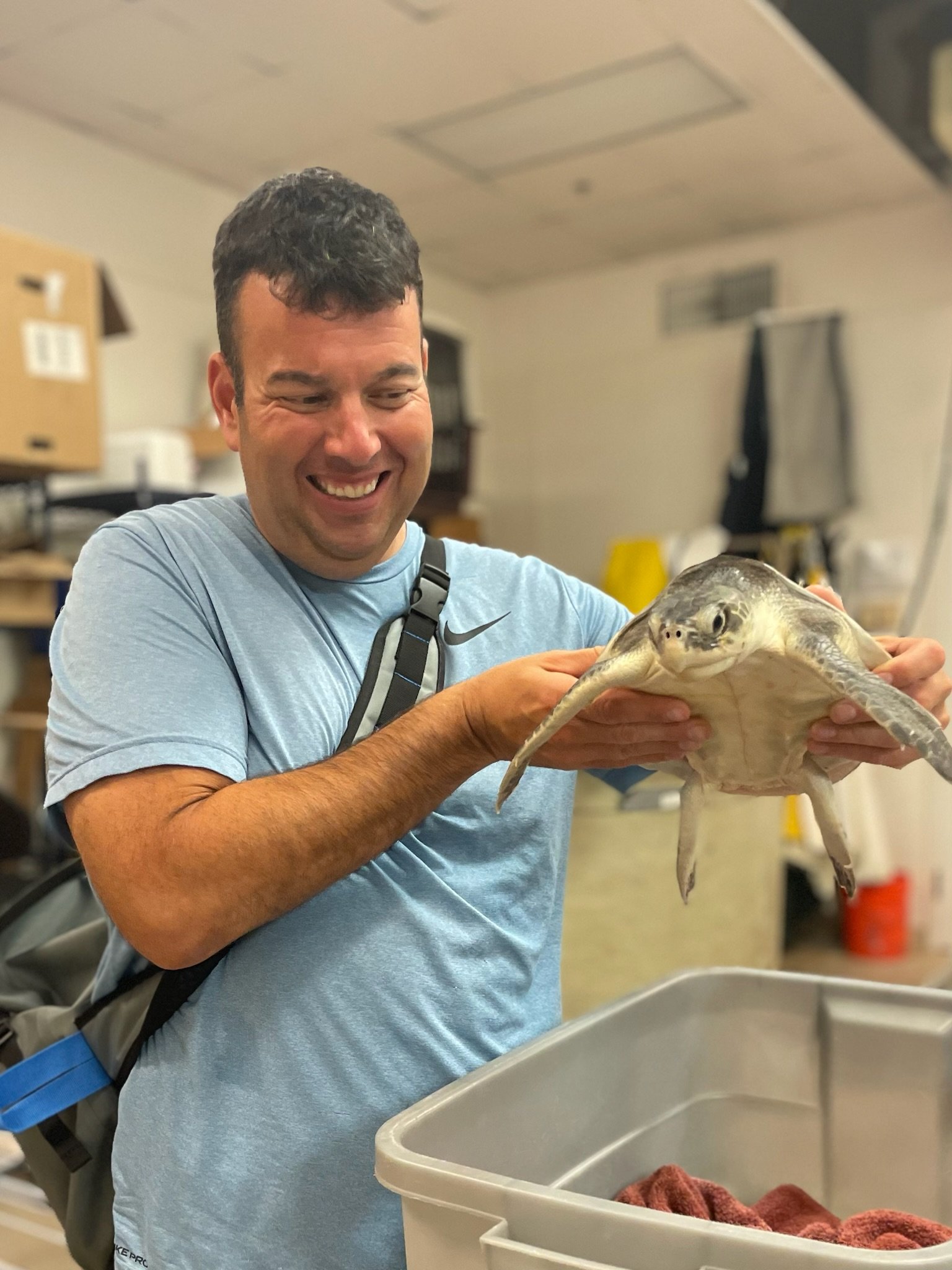
Jake’s Projects
Judah Jacob (Jake) Levenson
I’m always searching for ways to do things better. I’m drawn to combining cutting edge technologies, engineering, and animal science to create innovative approaches to discovering the unknown lives of ocean animals, protecting their habitats, and helping people and animals thrive together. My research centers on marine animals and protected species, innovative conservation approaches, and innovative tools for animal movement studies
My Work and Projects
I study the world’s largest animals, like whale and basking sharks, Ocean Sunfish, whales and Leatherback sea turtles. Rare species that dive to extreme depths.
Species
Understanding Large Bodied, Low Trophic Feeding Animals
This BOEM-supported study focuses on how can we use innovative tagging of the worlds largest species like basking sharks and ocean sunfish to understand potential impacts of human activities on these species. We’re also leveraging our work with these ocean giants to employ them as a form of biological glider that, through specialized tags, can map ocean features as they travel.
Marine Mammal Passive Acoustics and Spatial Ecology
This collaborative project partnered BOEM with Duke University and the University of North Carolina Wilmington to deploy innovative acoustic recording tags and passive acoustic monitoring to study sperm and beaked whale behavior in the deep mid-Atlantic.
https://www.boem.gov/newsroom/studying-sperm-whales-and-beaked-whales-atlantic-maps-project
Dominica Leatherback Turtles:
Over the past 15 years I’ve worked to understand the movements of leatherback turtles across the territorial seas of multiple nations, shedding light on their relationships with oceanic currents, ocean productivity, and the anthropogenic threats they encounter along the way.
Conservation
Building Conservation Capacity
In 2017, Hurricane Maria decimated Dominica. With the widespread loss of property and livelihoods, financial resources and conservation efforts to protect the coastal ocean ecosystem had to be put on hold as the island recovered. The situation exacerbated the perennial problem of conservation funding and reliance on constantly fluctuating grants and donations. I worked with a small and dedicated team on Dominica to tackle this problem by creating Rosalie Bay Distillery, the world’s first non-profit rum distillery, with 100% of its earnings directly funding marine conservation. Our first bottles of Rosalie Bay Single Rum went on sale in 2024, a further step on our path to conservation funding resilience
Tools
WhaleAlert:
This interactive tool enables the shipping industry to receive notifications of accurate whale management measures in real-time, reducing the risk of lethal ship-whale collisions.
Flukebook.org
The flukebook website connects people and animals through machine learning. It’s aimed at strengthening the global conservation of whales and dolphins, and providing robust data to inform conservation strategies, via a platform that allows researchers, conservationists and citizen scientists to share photos and videos of animal encounters.
Next Generation Animal Telemetry
Partner with NASA to accelerate a state-of-the-art network of small satellites tracking the movement of marine animals with more precision to create the next generation of animal telemetry.
https://www.boem.gov/newsroom/vision-next-generation-animal-telemetry-cubesats
Selected Presentations and Publications
Rasmussen, M, J. Levenson, M. Whittaker, M. Thompson, V. Zetterlind. “Combining Smartphones and Cloud Computing to Describe the Cetacean Population in Iceland.” Poster Presentation to the Society of Marine Mammalogy Biennial Conference, San Francisco, California. December 2015.
Levenson, J. “Leveraging Mobile Technology Informing Protected Area Management: Connecting Stakeholders to Fill Data Gaps.” Presentation to the Third International Marine Protected Area Congress, Marseilles, France. October 2013.
Thompson, M., J. Levenson, D. Wiley, R. Pace. “Automatic Identification Systems and Ship Speed Compliance and Commitment.” Presentation to the Society of Marine Mammalogy AIS and Conservation workshop, Tampa, Florida. December 2011.












